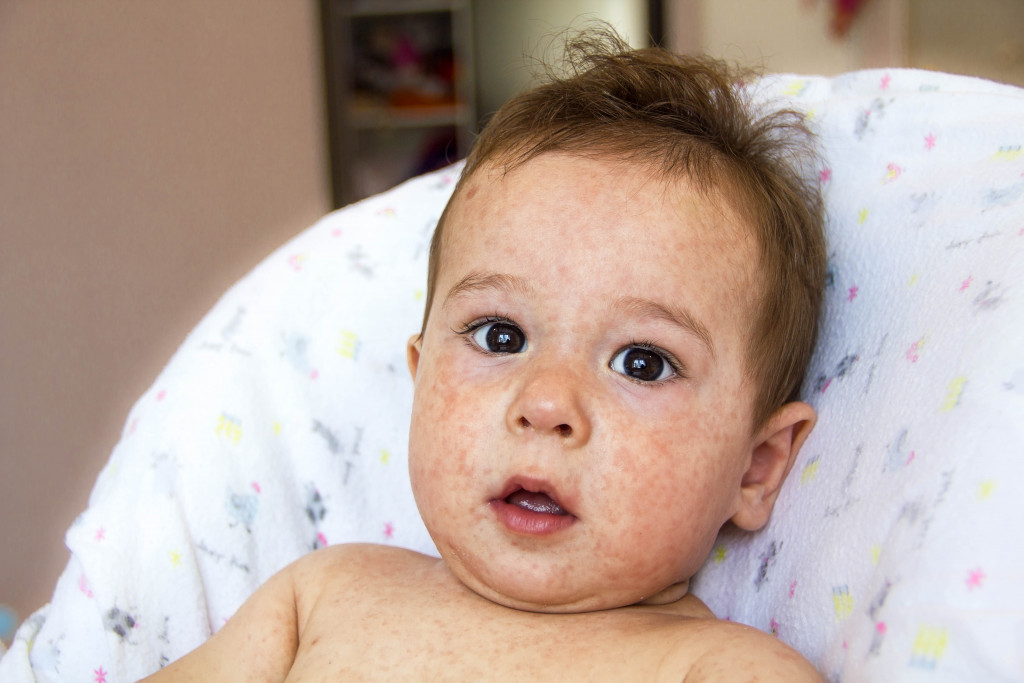It’s no secret that allergies can cause various symptoms in both children and adults. But if your child experiences an unexpected allergic reaction, it can be hard to know what to do. Fortunately, there are steps you can take to ensure your child is safe and treated quickly. This blog post will discuss what you should do if your child suffers from an unexpected allergic reaction.
1. Recognizing the Symptoms of a Severe Allergic Reaction
The most common sign of a severe allergic reaction is anaphylaxis, an acute allergic reaction affecting the entire body. Anaphylaxis usually begins with mild symptoms like hives or itching, but these may progress rapidly into more serious respiratory issues such as difficulty breathing and swelling of the throat or tongue. Other symptoms can include dizziness, confusion, fainting, abdominal pain or vomiting, and even loss of consciousness. If your child displays any of these signs after coming into contact with a suspected allergen, it is essential to act fast.
Some symptoms also vary in severity and may be more or less pronounced depending on the type of allergen. For example, a food allergy such as peanuts can cause more severe reactions such as anaphylaxis, whereas a pollen allergy may cause milder symptoms like sneezing and itching. Depending on the severity of the response, you may need to take different steps.
2. Treating the Allergic Reaction
If milder symptoms are present, immediately removing your child from any exposure to the allergen is best to do. This will help to prevent any further irritation. Depending on the type of allergen, you may also want to consider giving your child over-the-counter antihistamines to help relieve symptoms. You can also bring your child to your local family clinic for further medical advice. They can provide the necessary medications and treatments to help reduce the symptoms and prevent a more severe reaction.
If your child has experienced anaphylaxis due to allergen exposure, it’s crucial to call 911 immediately for emergency medical assistance. It would be best if you also had an epinephrine auto-injector (e.g., EpiPen) on hand at all times in case of emergencies like this one. Be sure you know how to use the injector correctly so you can administer it effectively if needed. Once emergency responders arrive on the scene, they will evaluate your child’s condition and provide further medical treatment as necessary.

3. Preventing Future Allergic Reactions
Once your child has been treated for their allergy-related symptoms, it’s essential to take steps towards preventing future reactions from occurring unexpectedly again in the future. Talk with your doctor about implementing an action plan to manage future allergies. Make sure that everyone in contact with your child knows how to identify and respond appropriately should another reaction occur.
Additionally, avoid any potential triggers by keeping track of what products or foods could cause a reaction, and always carry medication such as epinephrine auto-injectors when out and about with your little one! You may also order an allergy test through your doctor to determine what substances cause a reaction in your child. Once you have identified the trigger, you can make sure your child is not exposed to it.
4. Teaching Your Child About Allergies
Although it can be a frightening experience, allergic reactions can also provide an opportunity to educate your child about allergies and how to manage them. Talk with your child about the importance of being aware of potential allergens and using preventative measures to stay safe and healthy. Encourage your little one to ask questions and understand how their own body responds to allergens. It is also essential to reinforce the importance of following your doctor’s instructions and always having the necessary medication on hand should a reaction occur.
If they are too young to understand, you can still use simple stories and visuals to help them understand what is happening. This will allow your child to learn more about their condition and why certain steps must be taken to keep them safe. But don’t forget to be understanding and patient with them as well.
Allergic reactions in children can be frightening for parents and caregivers alike—but with the right knowledge and preparation, they don’t have to be! Recognizing the signs of a severe allergic reaction early on and knowing how to treat them is key. Just remember that calling 911 should always be done first before anything else! With some preventive measures in place—such as avoiding triggers where possible—you can help minimize the risk of another unexpected allergic reaction occurring again. Keeping these things in mind will help ensure that your little one stays safe next time around.


